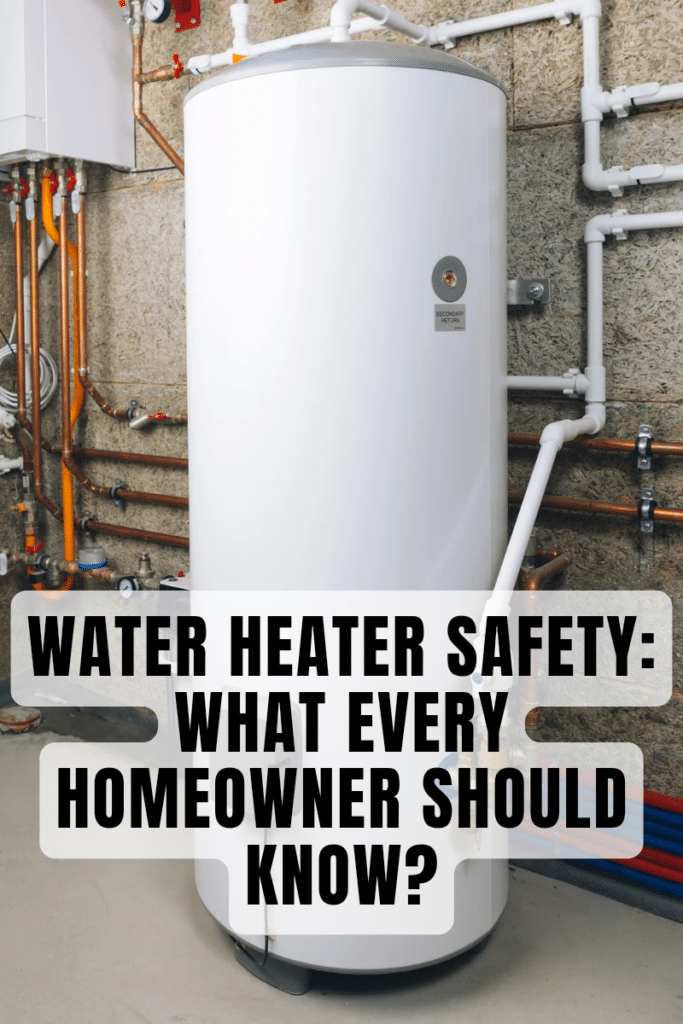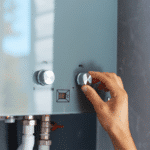While one’s home is a space to stay in with the joy of owning it, equally, there lies a duty to have the home maintained. When it comes to such a concern where it’s about your home, it becomes of prime importance that your water heating system is safe and efficient, and for that matter, as good as you need it to be.
Questions to do with water heating safety are perhaps the most important concern in regard to your water heating appliances. Proper attention to safety in this case will prevent accidents during use, curtail your energy costs, and ensure a good water heater functions at peak performance.
This comprehensive guide aims to enlighten homeowners on the best practices for water heater installation, maintenance and the necessary precautions to ensure a safe home environment.
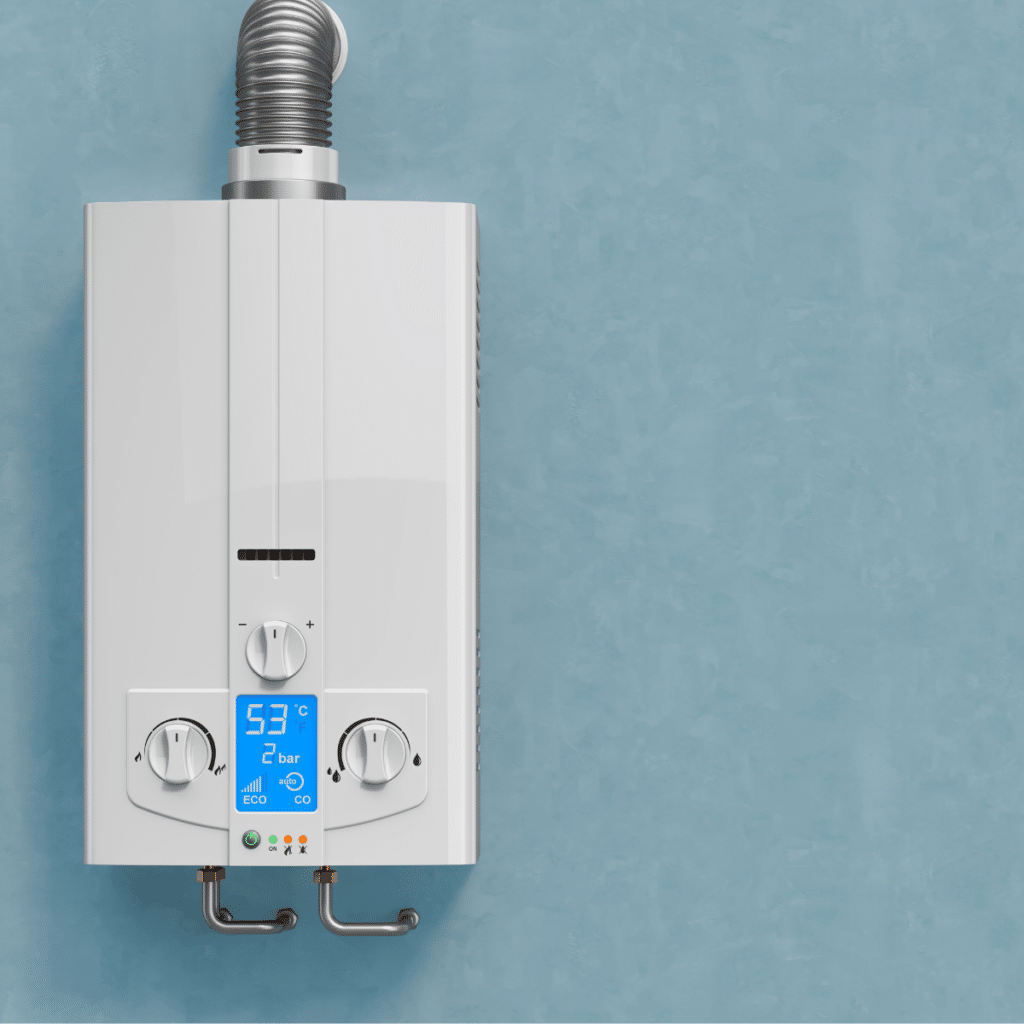
Installation and Maintenance Best Practices
The journey to a safe and efficient water heater begins at installation and is maintained through regular upkeep.
Professional Installation Requirements
Water heater installation is a very delicate task and, for the most part, rather demanding technically, especially as far as plumbing and knowledge of electrical setups, and even relevant building codes that are valid in the given locality are concerned. When installed improperly, it can only lead to its ineffective operation, while significant safety issues may, in principle, develop, especially associated with a fire, explosion, or water damage. I shall mean to say that this work will only be delegated to fully prevalent, exclusively certified professionals.
But companies such as Fuse Service offer certified technicians who assure you from the start that your installation has met the highest standards of safety and quality, giving you peace of mind to get on with life.
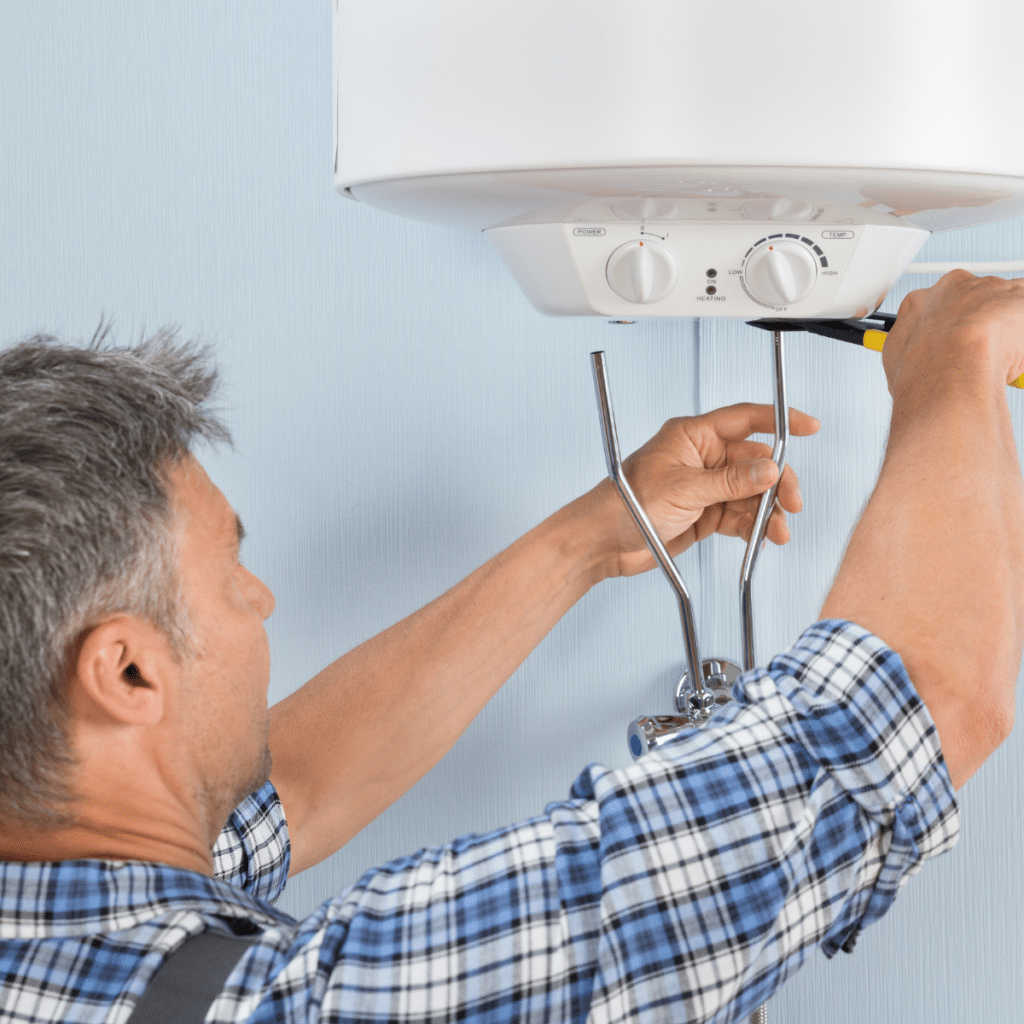
Regular Maintenance Schedule
Consistent water heater maintenance is key to detecting issues early, preventing safety hazards, and ensuring efficient operation. Common maintenance entails testing the pressure relief valve, flushing the tank to dislodge sediment that may accumulate, and checking the level of corrosion of the anode rod. This usually requires a balancing act between what a homeowner can do themselves and what they should necessarily hand off to a professional. Of course, scheduled regular HVAC maintenance will not only prolong the lifetime of your water heater, but it will also keep your home from suffering parts that fail at the most inconvenient time.
Upgrading and Replacing Old Units
Under normal circumstances, water heaters last from 8 to 12 years. Old and worn-out water heaters, besides being dangerous, tend to consume a significant amount of energy, leading to inflated utility bills. The new device comes with extra safety features, is energy-efficient, and meets current safety standards.
Modern water heating devices, including tankless models, have greatly improved with the safety and energy usage associated with them, meaning that replacing that old system is just a small additional investment for huge long-term savings and ongoing safety.
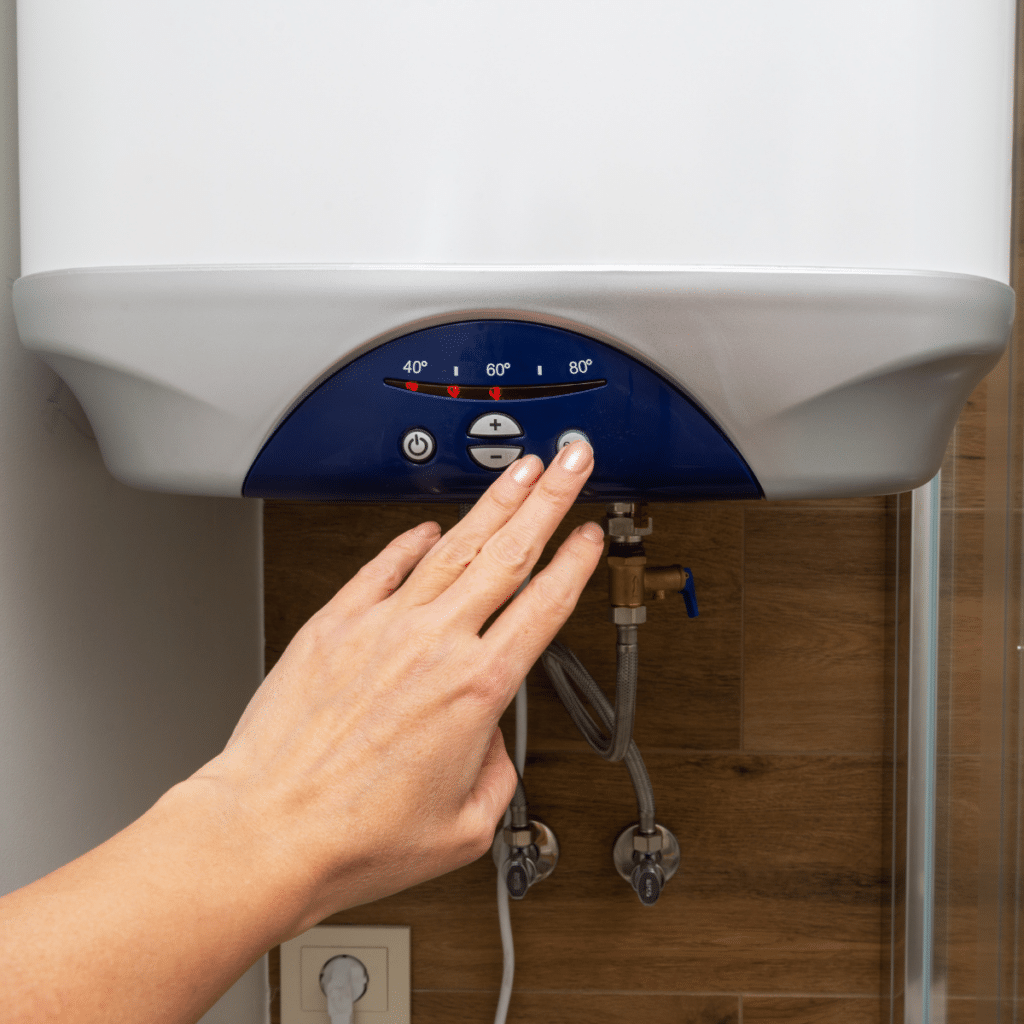
Understanding and Managing Water Temperature
This only means that safety and comfort may be achieved through the management of the water temperature. Overly high temperatures may cause scalding, while if too low, harmful bacteria may breed. Safety organizations recommend setting the temperature at about 120 degrees Fahrenheit, which is well balanced for the risks of scalding with energy efficiency and also provides the most lucrative hot water supply. It provides the trimming of the water supply to ensure that the water is hot enough for daily use but not overly hot to cause burns, mostly by children and elderly persons.
Preventing and Responding to Emergencies
It is, for that matter, paramount that every homeowner knows how to avoid or respond to water heater adversities. The signs of adversities include leaks, unusual noises, and the absence of hot water. In such situations, having knowledge about how to cut off the power and the water supply to the heater can bring down the levels of damage and associated risks.
In those conditions, a professional is needed to attend to an immediate check-up and repair with imperative importance on safety and efficiency.
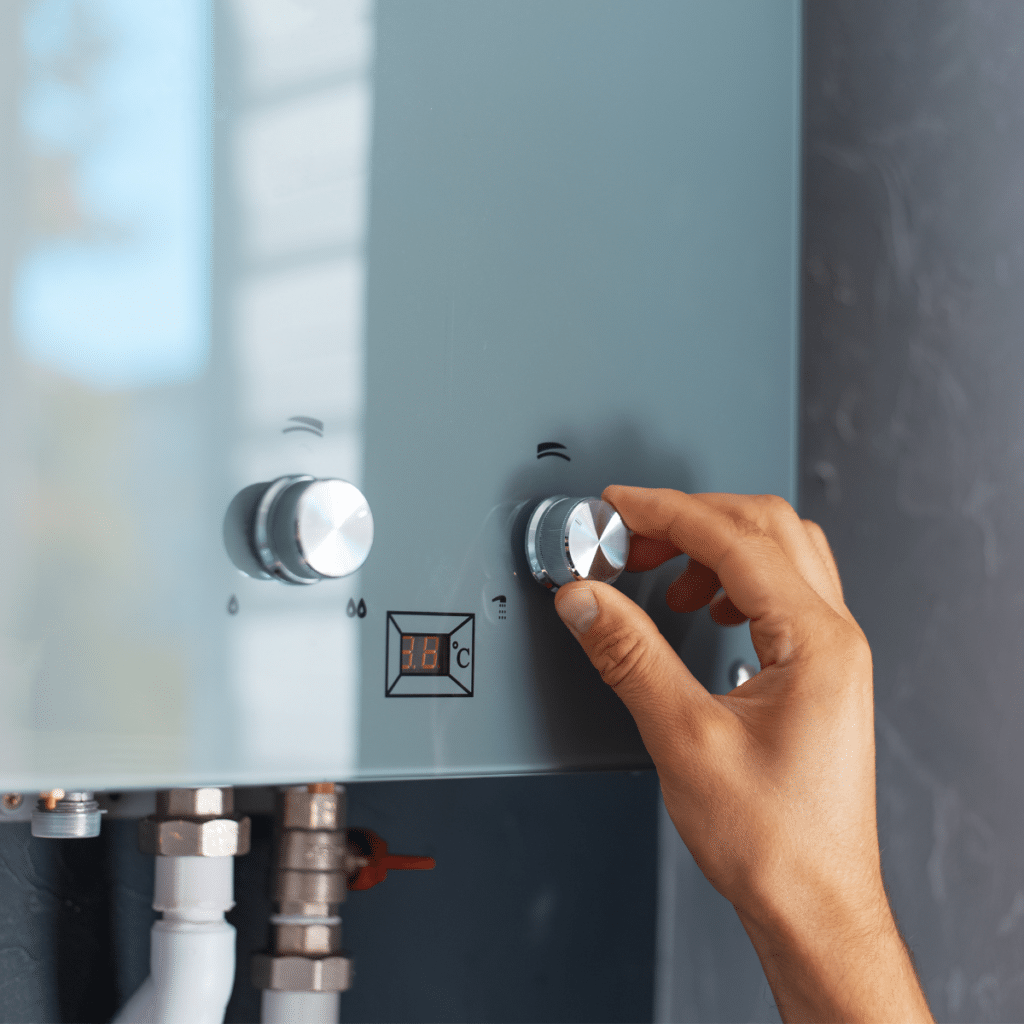
Legal and Regulatory Considerations
That primarily ensures that the respect their water heater installations draw from guarantees attached to them is mostly honored, guarded by so many local building codes and safety standards, to give just a few examples. All of this is done to ensure that water heater installations and their maintenance are carried out safely and correctly, respecting the preferences offered by customers and in accordance with current standards. On the other hand, householders have to satisfy themselves that such installation and maintenance can be carried out without contravention of these laws so that they do not become either legally responsible or, indeed, not be insured.
Other questions that need to be asked include: How will compliance be ensured? A series of pre-arranged, regular visits by an approved person to inspect your system may give reasonable assurance that it does not fall foul of building regulations at the local or national level.
In Conclusion
Considerations that are instrumental in the safety of a heater include professional installation, regular maintenance, carefully setting the temperature of the hot water, preparedness for emergency situations, and legal compliance. While most of the considerations need a closer look, homeowners are the most sensitive and keen to all such considerations due to matters of safety, efficiency, and reliability. Very professional installation and maintenance should never go out into the background. For instance, their knowledge will come in handy in ensuring the system is safe and in compliance with all set rules and regulations.
Remember, water heater safety is not just about preventing accidents; it’s about creating a comfortable, efficient, and safe home environment for you and your loved ones.
